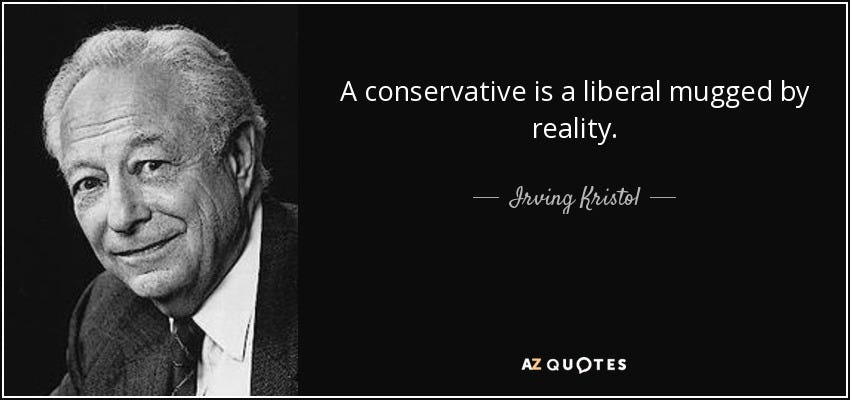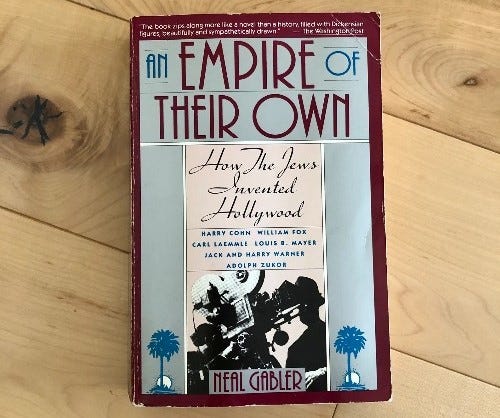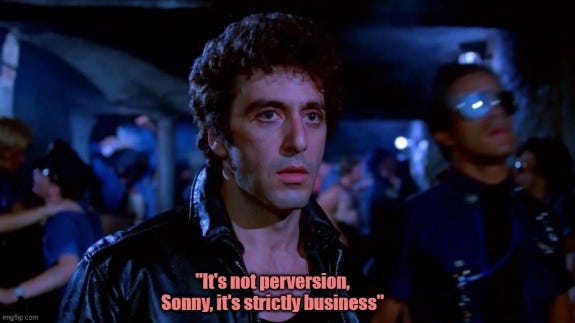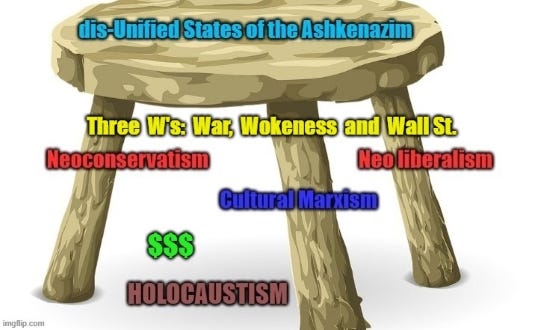Connecting the Dots with Disconnection
Thoughts related to thoughts about an election decided on/by the internet that elected a modern gangster
A subscriber and good friend of mine sent me an article here on Substack at The Hinternet site titled The Great Subduction - How the Internet Devours the Past, and Imperils the Future:
I read it of course, and had rather mixed reactions to it. The negative that ran through the whole thing was the air of unrestrained intellectual superiority, what happens to people of a certain set of behaviors while in college that perhaps was best exhibited in the film Good Will Hunting:
That’s probably unfair, but it’s just the visceral reaction I get to stuff like this sometimes…
But the content is more than that, starting with the bit on Varoufakis, who I liked when the Greek austerity thing first blew up, a notable moment in the steady advancement of neoliberalism and its human costs. But who I lost interest in over time as his analysis seemed to grow less relevant to me and more self-promoting, perhaps also in part because he no longer had his hands on the levers of Greek government. A man with a Greek job is better than just another talking head making intellectual bread on his 15 minutes of fame.
This is where the piece got interesting to me:
Varoufakis seems in certain respects uncertain of his central claim. He wants the economic transformations wrought by our most recent tech revolution both to be an unanticipated new twist in the history of capitalism’s mutations, a form of hypercapitalism that once again proves this economic order’s power to adapt and survive; and he wants it, at least in some respects, to be not a Great Leap Forward for capitalism, but a reversion back to a pre-capitalist order we had previously imagined to be long behind us. What Varoufakis calls “cloud capitalism” amounts to a variety of rent extraction reminiscent of the manorial system of land tenure that “permitted” serfs to live off of the fruits of a feudal lord’s estate, on the condition that they provide to him a share of these fruits. The systems are similar in that (i) de facto and often de jure, the serfs back then, just like us serfs today, really had nowhere else to go; and (ii) the lords themselves are enriched not by owning the means of production, but by owning the “land”, as soil or as cloud, that the rest of us are constrained to work. So what is it then, supercharged capitalism or atavistic feudalism?
What this analogy made me think about, with regard to eastern European second serfdom, the form of serfdom which systemically still existed when capitalism began its rise, is the group that’s missing. That being the one group most linked to capitalism - the Jews, the middlemen people welcomed into the Polish-Lithuanian Commonwealth by the nobles as economic developers, the mercantilists. That because I had done a lot of work on that subject earlier this year, most specifically in the second of my series of articles on Timothy Snyder’s Yale survey history course (full circle back to the Ivys, including alcohol!) on Ukraine:
Ukraine, Russia and the Bending of History - Part Two: Alcohol, Antisemitism and the Arenda
The second part of this series of articles will analyze lecture 8 of Tim Snyder’s Yale Ukraine history course and focus on the Jews during the first half of the period in question, that roughly the 14th to the 19th century, which will take us to the Khmelnitsky revolt in Ukraine in 1648. Because Snyder’s course is on Ukraine and because during this peri…
So how do they ask that concluding question, supercharged capitalism or atavistic feudalism, if the linking component between feudalism and capitalism is simply missing? This is the same problem I see over and over in contemporary (and historical) socio-political analysis, the problem of habitual Jewrasure. The piece continues:
(Some further questions might be: When exactly is the revised ETA for true communism now? And why is it that today the Marxists are the best at explaining why, far from capitalism collapsing under the weight of its own contradictions, it is now proving so robust and durable that surely defenders of other systems must by now be thinking: how can we get some more of those sweet contradictions for our side?!1 But we’ll leave these matters for another occasion.) By his own lights, there is no contradiction in saying that our new economic regime is two things at once, while the new prefix on the older of the economic systems is meant to convey this both-at-once status. As Varoufakis explained in a recent interview with WIRED Magazine: “My argument is that we have progressed forward to a new system, which has many of the characteristics of feudalism, but it is one step ahead of capitalism. To signal that, I added the word techno.”
Starting with the mocking critique of Varoufakis’ communism, I must mention the Jewrasure involved there, what is commonly referred to as the Judeo-Bolshevik Myth. So we have Jewish Marxism in the early 20th century failing in the industrialized west to do as predicted, which initiated deep Jewish analysis of that failure and so the consequential rise of cultural Marxism by mid-century, that most clearly embodied in the Frankfurt School.
Another Jewish face on this transitional period was Irving Kristol, the father of neoconservatism in the latter 20th century who was a Trotskyite earlier in the century.
But the people most involved with what is described as supercharged capitalism were into that project at the same time as the Frankfurt School boys were arriving in the US, in the post-WWII period.
When Varoufakis refers to “a new system, which has many of the characteristics of feudalism, but it is one step ahead of capitalism”, I think of the cultural link between those Jewish economic exploiters in eastern Europe under serfdom 250-500 years ago and the Jewish billionaire oligarch exploiters in Silicon Valley today who are at the heart of what I have labeled neo-libertarianism. And he underlines that connection with what follows: “To signal that, I added the word techno.”
The writers go on to further describe this landscape:
It seems to us, in fact, that not only is capitalism likely to survive the present changes, but that it is the only thing that will. It will survive mostly by cutting human beings out of the picture altogether as economic agents, transforming them instead into something much more like a natural resource. In this respect, pace Varoufakis, if in certain respects cloud capitalism reintroduces certain features of feudalism, we would do best to understand the great majority of human beings living today not as analogous to feudalism’s serfs, but to feudalism’s cabbage, turnips, and beets. The problem is not that we are forced to farm the land —i.e., fill the cloud with our data as an activity akin to labor—, but that we are ourselves being farmed.
My tendency instead of describing us as cabbage, turnips and beets being farmed would be to make that cattle (I grew up on a cattle ranch and not a truck farm), utilizing a Talmudic description of the lowly goyim. But I think perhaps a flaw here is lowering the river instead of raising the bridge - the meaningful change taking place is at the top, where deep state operatives like Bush’s neocons and Biden’s minyan are being supplanted by more direct deep state involvement, last week’s Trump naming of Valley billionaire oligarch David Sacks the White House AI and Crypto Czar for the incoming administration as the J-face on that.
The next section of the piece points out through the art of writing why its consumption will be so limited, in the course of it getting to the matter of the truth:
Of course, as we write, the antidisinformation industry is shrinking as fast as DEI initiatives. It has come, since November 5, to seem a particularly impotent gesture to continue offering up that reflexive Well actually… whenever we hear someone railing against seed oils or questioning the efficacy of handwashing or whatever. Obviously, well before Trump’s newest victory it was perfectly clear that such maneuvers as these were not at all invitations to Well actually… responses, but rather signalings of social identity, akin to your likely habit —ô esteemed elite demographic, ô valued micromécène— of calling your spouse your “partner”. Are seed oils “bad” for you, or are they “good” for you? Is your spouse your “partner”, or rather your “soulmate” or perhaps, for the “trads” out there, your “helpmeet”? We are sufficiently Sellarsian to understand that the truths to which we commit ourselves derive mostly not from evidence, but from the “space of reasons”, an ultimately normative territory, so that, as a corollary, we should simply take it for granted that any major shift in the prevailing political culture is going, necessarily, to be accompanied by a corresponding shift in the range of things you will find being affirmed as true. A radical shift in the political culture is bound to be accompanied by an exactly commensurately radical shift in truth-affirmations, or, to use our preferred language, derived not from Wilfrid Sellars but from Bruno Latour — in matters of concern.
Now, reference to “the antidisinformation industry” is a triggering event to anyone occupying the cyberspace that they are critiquing; images of the non-Jewish Jewess Nina Jankowicz surely are dancing like sugarplums in the heads of such as us.
But let’s face it, we do live in the post-truth world, and what we rely on with near-exclusivity in many cases, the disinformation-industrial complex (my term) of the alternative media, at best requires deep skepticism, confirmational analysis and informed, practiced judgment. And that hint of humility is also contained in the writers’ thoughts:
The epistemic crisis that currently has so many millions of anti-MAGA Americans in such a deep funk is really entirely their fault: they just can’t make any sense of why a different group of people has taken to mongering a different set of apparent facts, when the truth of their own preferred set seems to them to be as plain as day. But if it’s really as plain as day, then why can’t we all just get along?
Why indeed. The following analysis of Hollywood is just like the earlier looks at serfdom and communism and capitalism; it’s entirely bereft of the Jew. Here is how they frame it:
For a good century or so, cinema entirely shaped the transcendental imagination, created true new divinities, and new demiurges who spun out mundi in mundis. And this remained the true structure of our cosmos until gaming and other still more immersive digital experiences killed cinema as an art form some time around the turn of the millennium — with a few straggling phantoms left behind here and there on the “indie” circuit, and of course a great stupid horde of Titans and Transformers and so on still stomping around Hollywood, gradually turning it to rubble.
It was the motion pictures that killed God, we feel like saying, but it was the internet and virtual reality that killed the external world. (If we think of modernity as the slow killing-off of one transcendental idea after another, then we should also save some space for the demise of the soul, the self, or however you prefer to describe it; but that will have to wait for another occasion.) In the century or so of the supremacy of the Hollywood Empire, there remained a stark division between “above” and “below”. The waterbed guy was above us, and James Dean far above him, simply in virtue of their power, which we wholly lacked, to manifest themselves as beings of light.
But as eMike would say, it was the Jews who killed God, including on the cross but not only. As he says, it was the survivor Holocaust novelist and liar Elie “the Weasel” Wiesel who said God died in Auschwitz; not sure if that was in his imagination’s flaming pits. And it was Jewish Hollywood that drove the explosion of pornography after they broke the production code in the mid-’60s, which Jones emphasizes is a manifestation of technology - first the printing press, then still photography, then film, then video, then the internet awash in streaming porn in this age.
But has the internet of online gaming killed the Hollywood of the 20th century? As an art form specifically, that is, because there’s no mention of television. Or did digital media and then streaming internet take the magnificence of that away, with shrunken screens and shrunken stars demoted to doing HBO and Showtime “TV” series? Instead of seeing 10 or 20 films per year in theaters (but many more on television, even if rerun) we now can watch hundreds at home at a time of our choosing, and the limited series is an entirely new concept that can expand the film concept and quality over many more hours. In the words of James T. Kirk, “And the stars are still there, Bones”, they’re just kind of different - the article is right about that leveling of the playing field.
But what streaming Hollywood also has been doing is things like normalizing homosexuality and even transsexuality, and it’s not subtle - are you like me, every time you start a new series you count down with some sense of dread until the cringe moment when the completely normalized homosexual or homosexual encounter inevitably arrives on the scene? When was the last time you watched something that didn’t involve black or brown or Asian actors, even if historically or socially (or fantastically as in the Lord of the Rings Prime series) inaccurate?
Hollywood hasn’t grudgingly succumbed to cultural Marxism, Jewish Hollywood is on the cutting edge of promoting it. Watch a film like The Breakfast Club and ask yourself if this ‘80s teen classic could possibly be made today as it was then. Answer: zero chance. Is that film somehow considered truly culturally offensive today? Only if you consider it racist and sexist, or maybe just a bit too cisgenderish. Hell, even the janitor was white.
I happened to scroll through a list of the top 100 films of all time in Variety from 2022, the first one since 2000 was Moonlight from 2016 in #42, and this is how they describe it:
The dramatic Oscar-night twist — which saw Barry Jenkins’ queer Black indie drama upset old-school front-runner “La La Land” — revealed a major shift in sensibility from the Academy, which had snubbed “Brokeback Mountain” and “Do the Right Thing” (the unacknowledged best pictures of their respective years). At a moment when the industry was coming to terms with a lack of diversity in its stories and storytellers, “Moonlight” sublimely illustrated what had been missing…
So Hollywood had snubbed the gay mainstreaming pic (#57) and the Spiked black joint (#14), but made up for that here. Next is In the Mood for Love in #53, a Hong Kong film from 2000, and then Brokeback from 2005 in #57. Then in #60 was Moulin Rouge! from 2001 which I guess is an Aussie film, and next in #70 is 12 Years a Slave from 2013, which is of course a black-subject film. Finally in #76 is Tree of Life (2011), the required Terrence Malick entry, a mainstream American film featuring white folks, and then The Dark Knight from 2008 in #81. In #82 in the most recent film on the list, Parasite from 2019, a Korean film; Pan’s Labyrinth (2006), which I guess is Mexican/Spanish, is #84, Bridesmaids (2011), a female comedy, is #94, and that’s it.
So ten films or 10% of the total from a period of over 20% of film history (the oldest film on the list was from 1916), and four are foreign and four are black, gay or female centered. One of the remaining two is about a comic book superhero from the mid-20th century, and the other is a period piece set then. More than 20 years and only one Hollywood film about real people and roughly normal stuff makes the Variety cut, and that isn’t even of our time.
This list isn’t definitive of course, but maybe it’s more about today’s judgment than actual films, and what is being produced in this genre that doesn’t qualify as a film. But it seems like cultural Marxist intentions are seriously impacting what is made, how it’s made and what is officially appreciated. And at a cost to film itself.
In comparison there are 15 films from the 1970s: The Godfather (1972) #3, Nashville (1975) #17, The Godfather Part II (1974) #19, Chinatown (1974) #22, Network (1976) #31, Annie Hall (1977) #37, Mean Streets (1973) #47, The Texas Chain Saw Massacre (1974) #49, Apocalypse Now (1979) #51, Carrie (1976) #64, something called Jeanne Dielman, 23, quai du Commerce, 1080 Bruxelles (1975) #78, Kramer vs. Kramer (1979) #83, Scenes From a Marriage (1974) #91, Pink Flamingos (1972) #92 and Alien (1979) #97. Only Scenes and that Bruxelles thing are foreign and the latter is the only “cultural Marxist” entry (it’s about women and female stuff - homemaking and prostitution). Okay, okay, so there’s also Divine in Flamingos. A lot of different types of films and subject matters though.
Now imagine how it would have impacted the Godfather movies if Michael Corleone was closet gay…
…or if Annie Hall was played by Pam Grier…
But the story here blames the erosion of Hollywood films on computer videogames. Sounds kind of familiar.
Btw, the decade with the most films was the 1990s, right before the current drought, with 18, which perhaps impacts the writers’ view. And surprising to me was the absence of Schindler’s List (1993) among them, the Holocaust honor instead going to Claude Lanzmann’s Shoah (1985, #43).
The writers’ assessment of declining Hollywood reaches its destination when it encounters the election:
The Democrats recently burned through obscene amounts of money paying off sundry “A-list” celebrities to “say some kind words about them”, failing to understand that at this point even the very highest names on that antiquated register are basically non-entities from the point of view of the generation currently set to inherit the world — or at least, if they happen to know who George Clooney is, they are still unlikely to perceive him as a being of pure light, as one would have done in the era of Hollywood’s supremacy. The entire roster of celebrities Kamala managed to bring together was not worth a single appearance on Joe Rogan’s podcast. For a good long time we ourselves disdained even to acknowledge Rogan’s existence. We were intellectuals, and he rabble. Even now not one of us has ever heard a single minute of his podcast, but we understand enough by now about his chosen medium to dare to venture a few words about the significance of his rise to the role of at least a partial kingmaker.
Forget about the dubious political value of Hollywood stars during its golden era (think Marlon Brando and Jane Fonda). What matters here is the view of Joe Rogan and his loyal followers as the representatives of the great unwashed of cyberworld. If there’s anything that tells you something about these writers it’s that “not one of us has ever heard a single minute of his [Rogan’s] podcast”. That’s like someone of 50 years ago appraising the impact of television nightly national news, only owning a television to watch Masterpiece Theater, and never having even seen Walter Cronkite. Moustache, right, kinda looks like Don Corleone?
It’s hard to believe that someone who has never watched a minute of Rogan can really understand much of anything about the world of alternative political discussion and debate on the internet. It goes without saying that anyone who hasn’t seen Rogan at this point also hadn’t watched any Alex Jones in his day. And that’s barely the tip of the iceberg, especially if one is talking about the dark web that spun Donald Trump as they are. I wonder if any of these guys has ever spent a few hours surfing Bitchute.
They put Smokin’ Joe in context with this: “You can now go online and find two-hour videos of people making linguopalatal click sounds with their mouths.” Yeah, well, don’t you know that long-form discussions of the IDW variety go on for three hours? Try to mouth-click for another hour and see what that does to your mind, body and soul…
But their point is that today there’s so much cloud space in our virtual world that crap like three-hour Rogan podcasts and two-hour oral clickfests are mass-manufactured with no hope of ever filling it.
The piece doesn’t go on much farther than that, to be continued I guess. I was left feeling kind of empty after the style-over-substance presentation that left the impression that the case being made about a group of people they don’t understand that well has a huge hole in the middle, that being the Jews. But I learned a couple new words, so there’s something…
Before signing off I want to get to another normie mainstream leftist who provides a roughly parallel analysis to this piece, and to my last piece as well, which was in part about left vs right and/or establishment vs oppositionalism as reflected in Trump, the election and his staffing to date. That comes from TMR guest Jeet Heer of The Nation magazine, starting with the apparently-political assassination of that medical insurance CEO on the streets of Manhattan:
I just love a good turd-in-the-punchbowl moment! Although Emma goes a little too graphic even for Sam.
The gangster imagery is the fulcrum of this take, and Jeet mentions both the Godfather and Bonnie and Clyde (1967, #27). He says the dynamic is now system versus anti-system, which is the same as establishment versus oppositionalism.
What isn’t so much erased by Jeet is the Jew. He mentions Trump mentor Roy Cohn and the Chicago Jewish political mafia’s Rahm Emanuel, who surely must have been influential on the bailouts and prosecution decisions as Obama’s first chief of staff, and Michael Bloomberg the good billionaire.
He says the triggers were WMD and the war on terror and the financial meltdown, and who were the villains there? Neocons Paul Wolfowitz, Douglas Feith, Scooter Libby and Richard Perle in the Bush administration, and neoliberal bankers Lloyd Blankfein, Jamie Dimon, Dick Fuld and Ace Greenberg on Wall Street, all Jews. Neoconservatism is continuous wars against the past and present enemies of the Jews, and neoliberalism is Chicago School Jewish economics a half step behind libertarian/neo-libertarian Austrian School Jewish economics, and created the billionaires now pushing the latter via the Trump election, on the road to true oligarchy.
He says Hillary was when the Dems decided to become the pro-system party, and I’ve said the Dems became the establishment party in 2016 - in large part because they had then spent nearly a quarter century supplicating to the newly-dominant Jewish deep state faction, fully embracing their political philosophies.
Perhaps the conclusion here, again staying away from left versus right, is that too much higher education and too much intellectualizing and philosophizing blinds one to the actual problem today. Maybe Hollywood should make a film about that, one that doesn’t include fawning references to Howard Zinn and Gnome Chomsky.
Btw, I actually would have liked the film more if big bad Pam Grier was kicking Woody’s pedo Jew-ass as the blaxploitation version of Annie Hall… 😁














